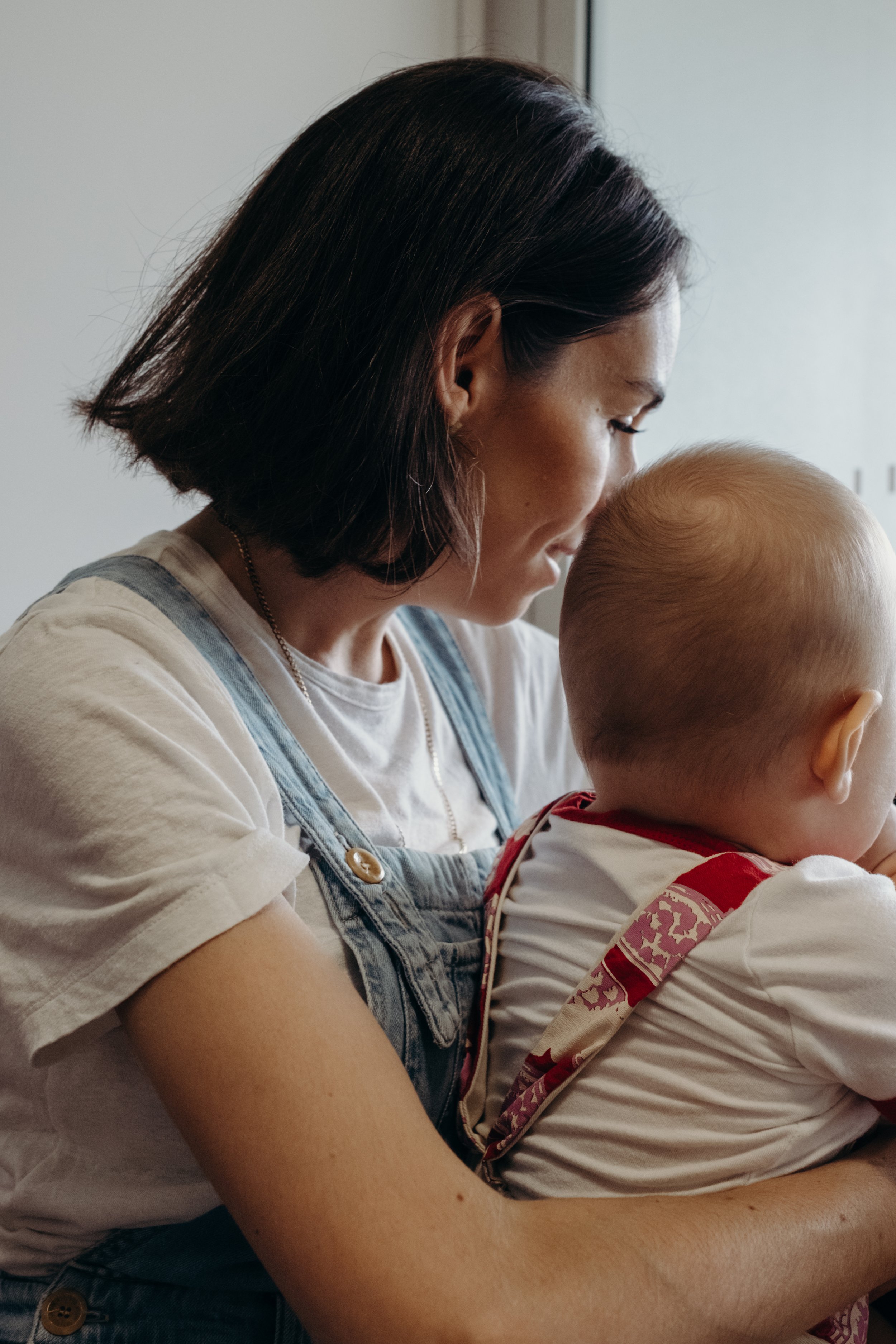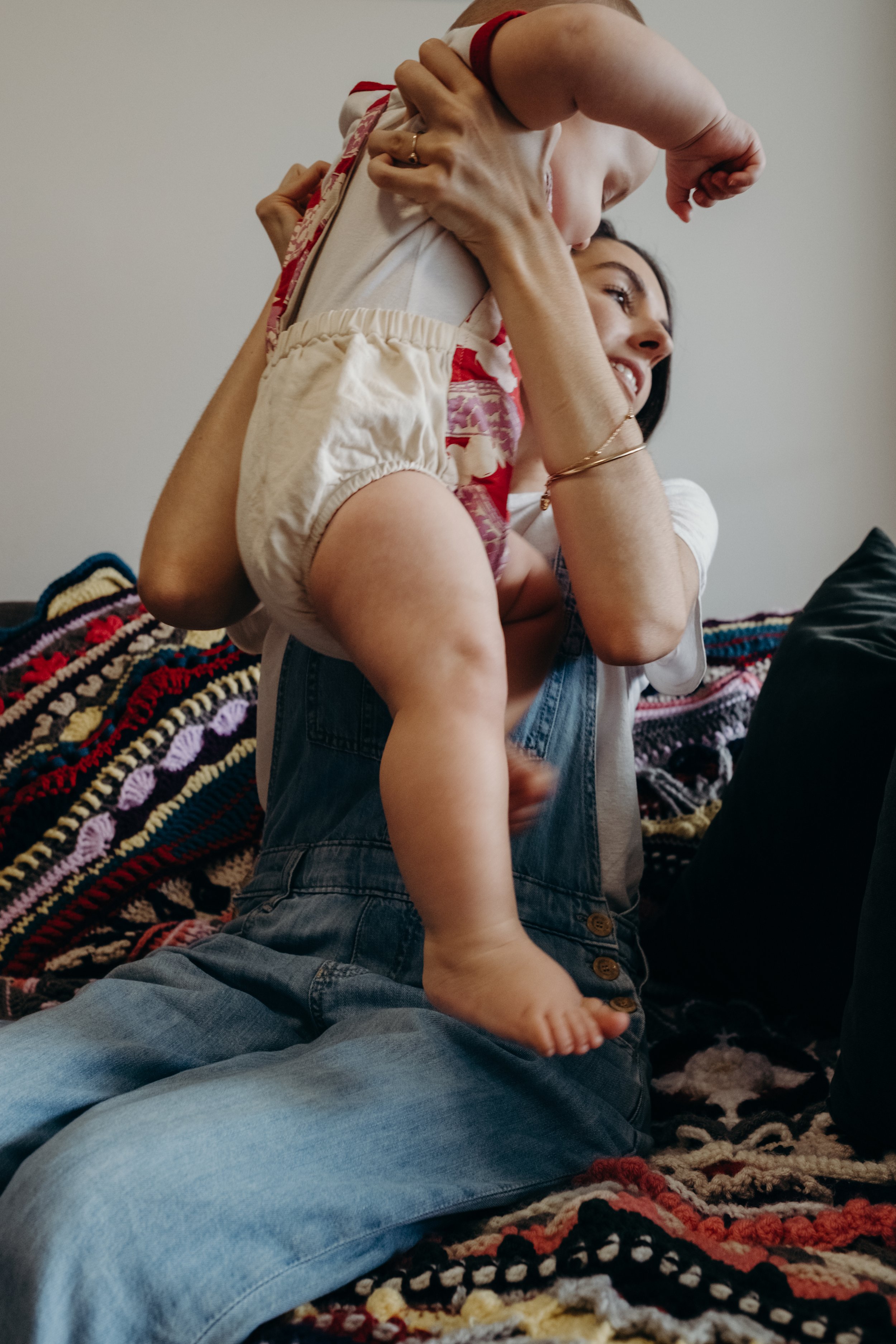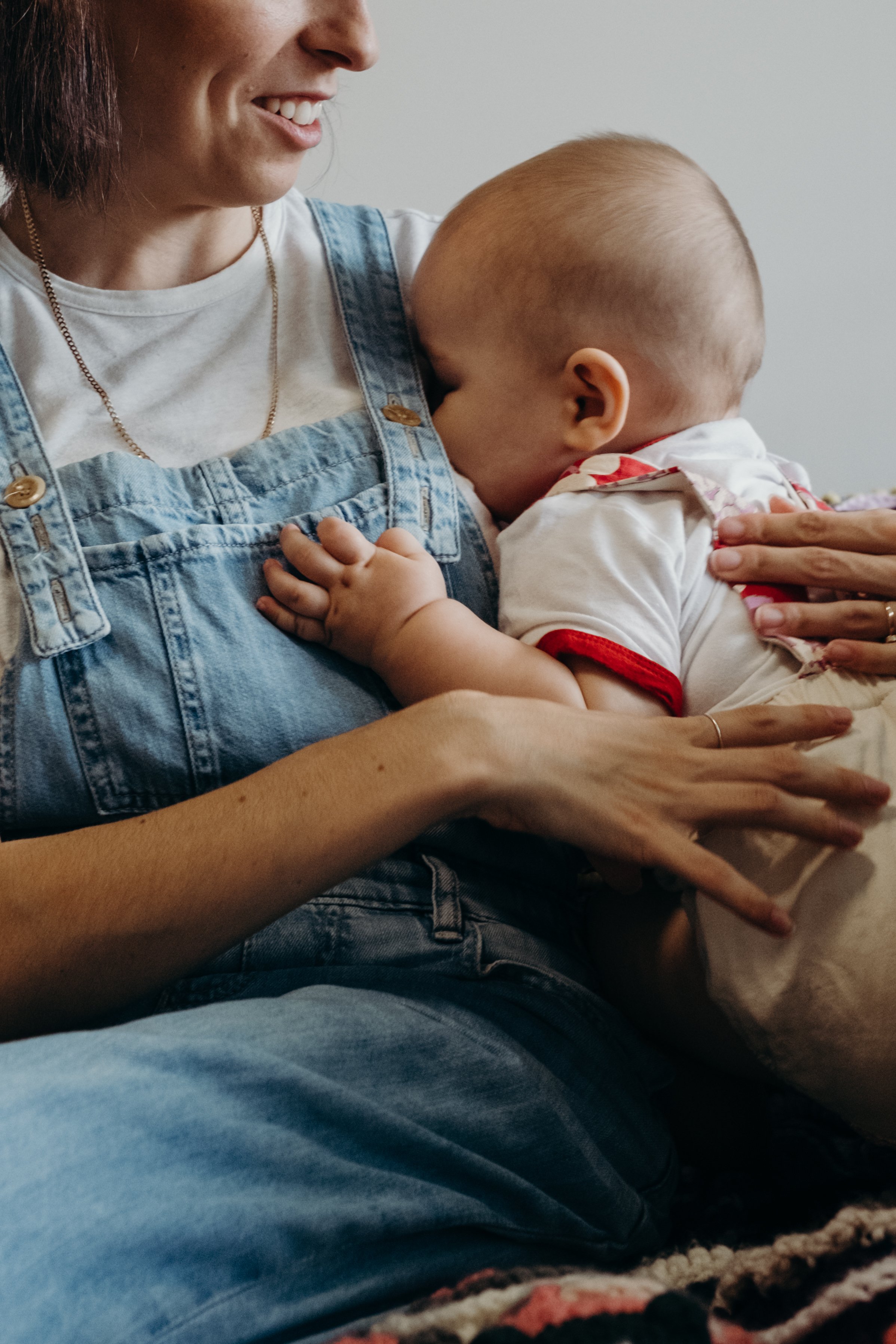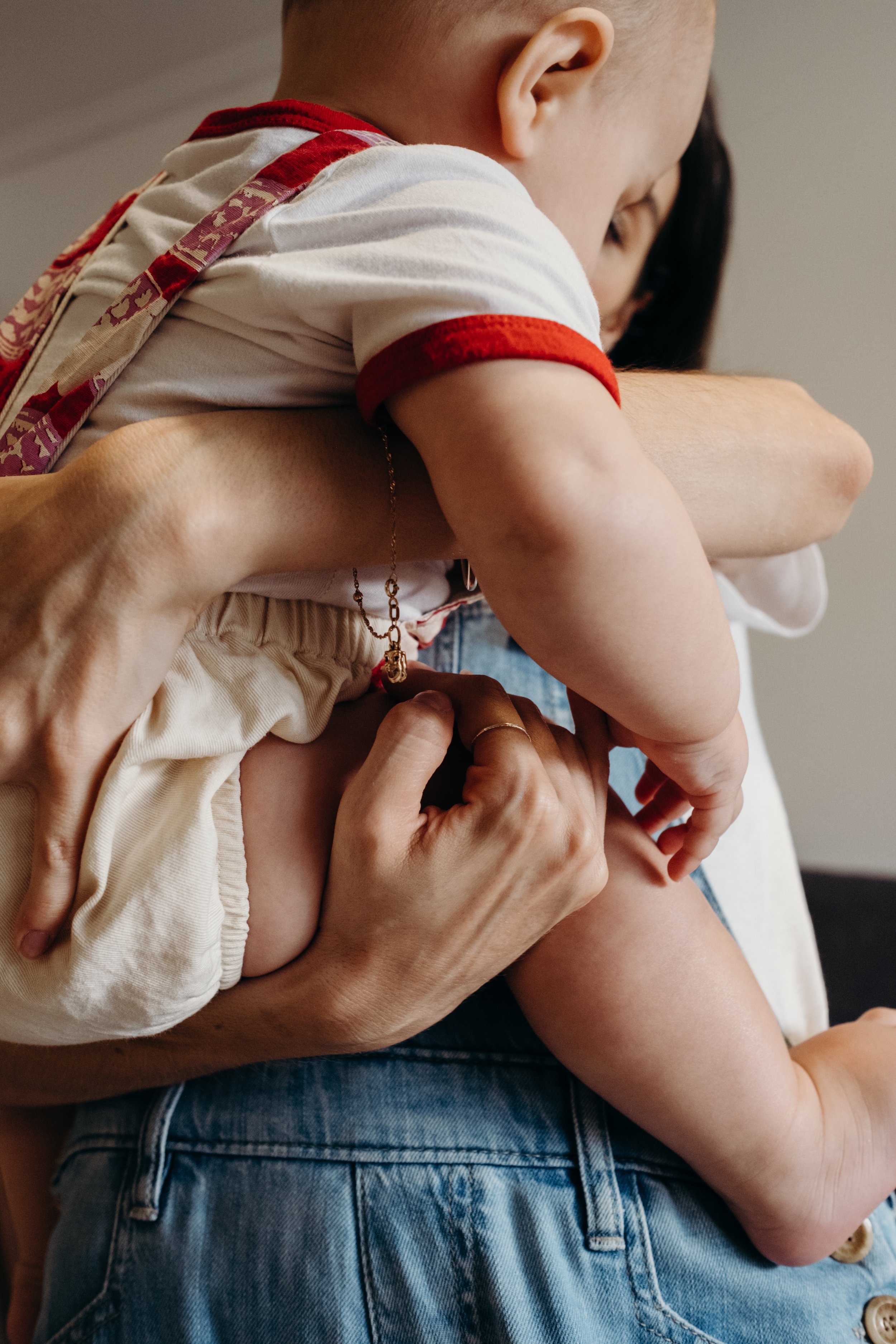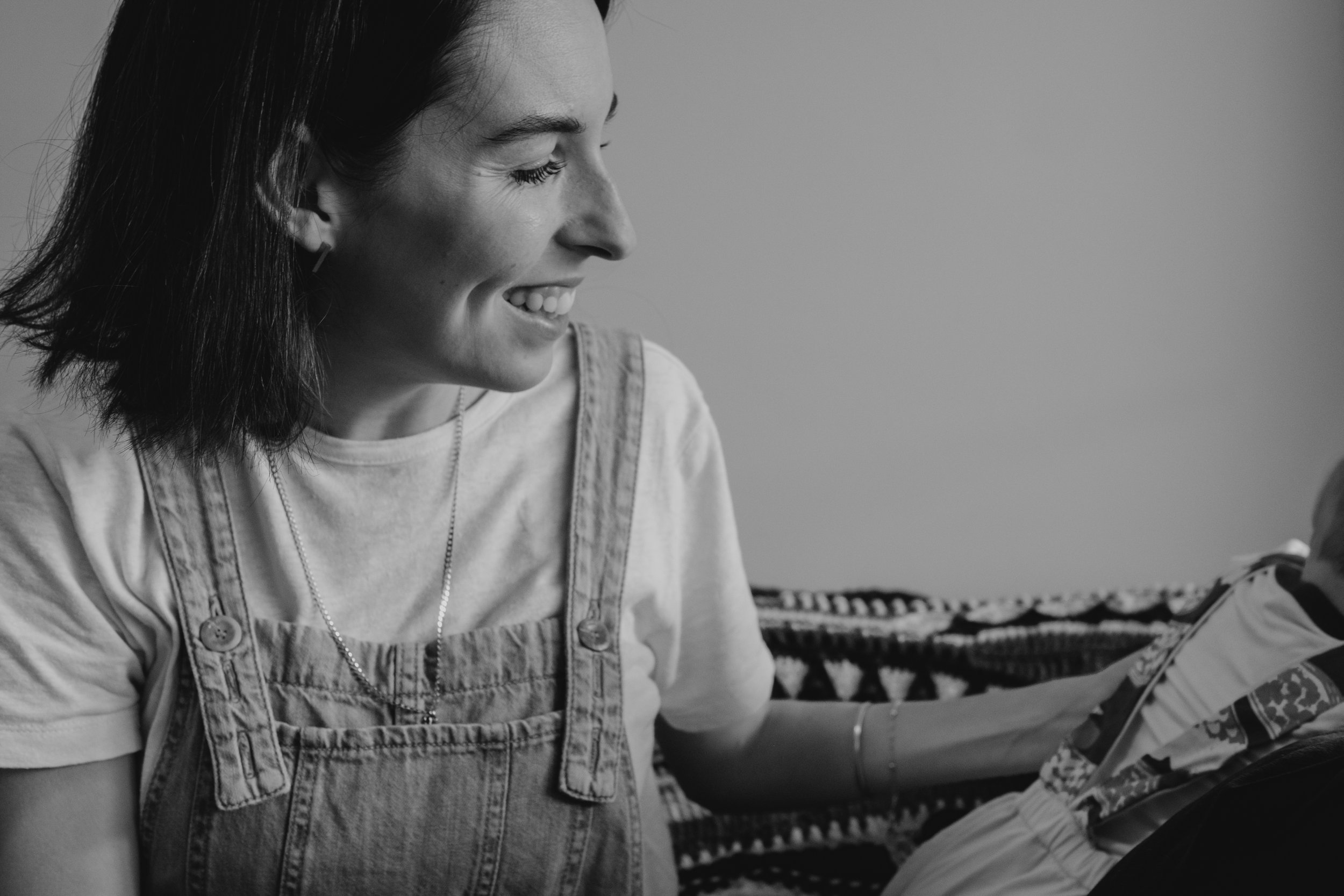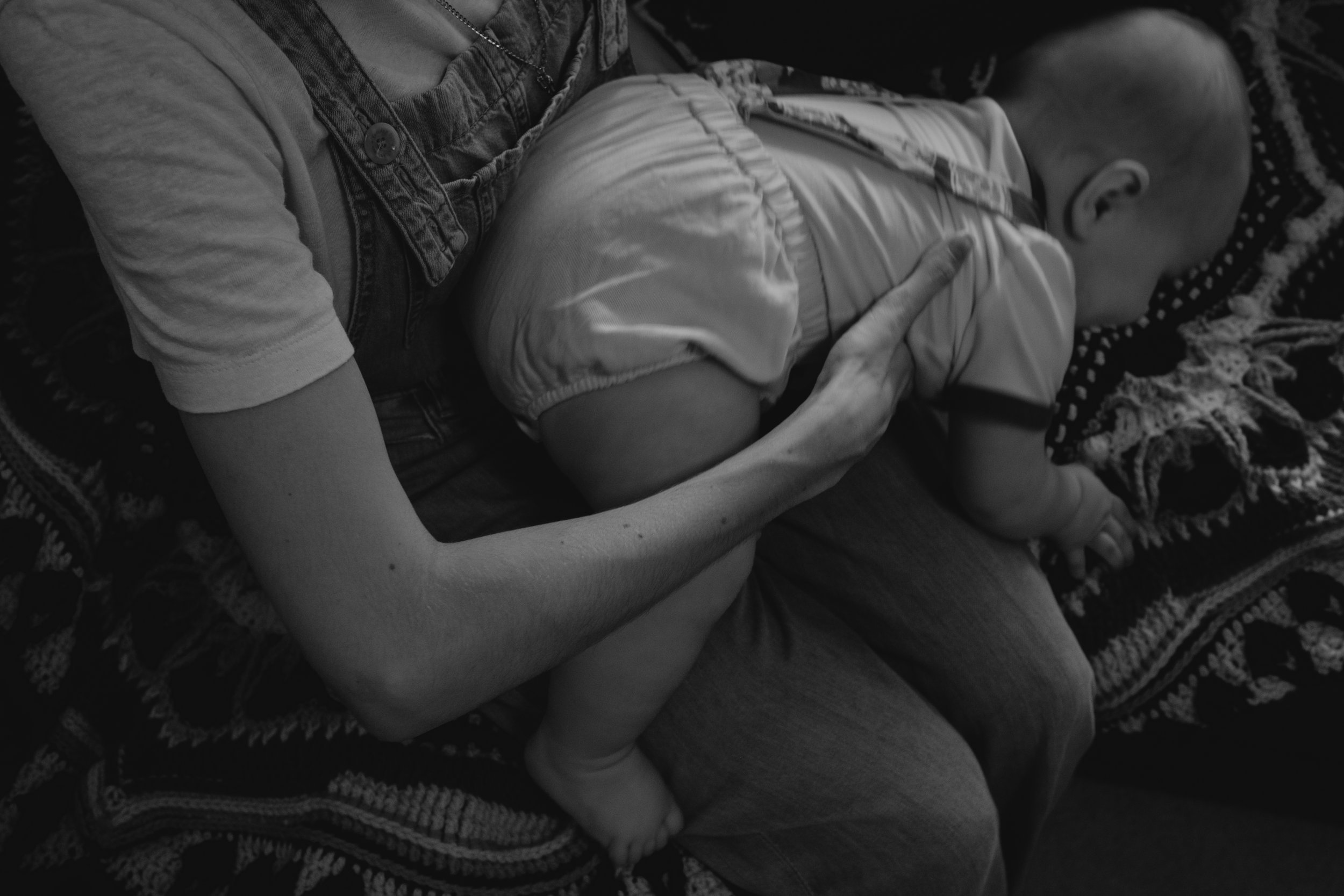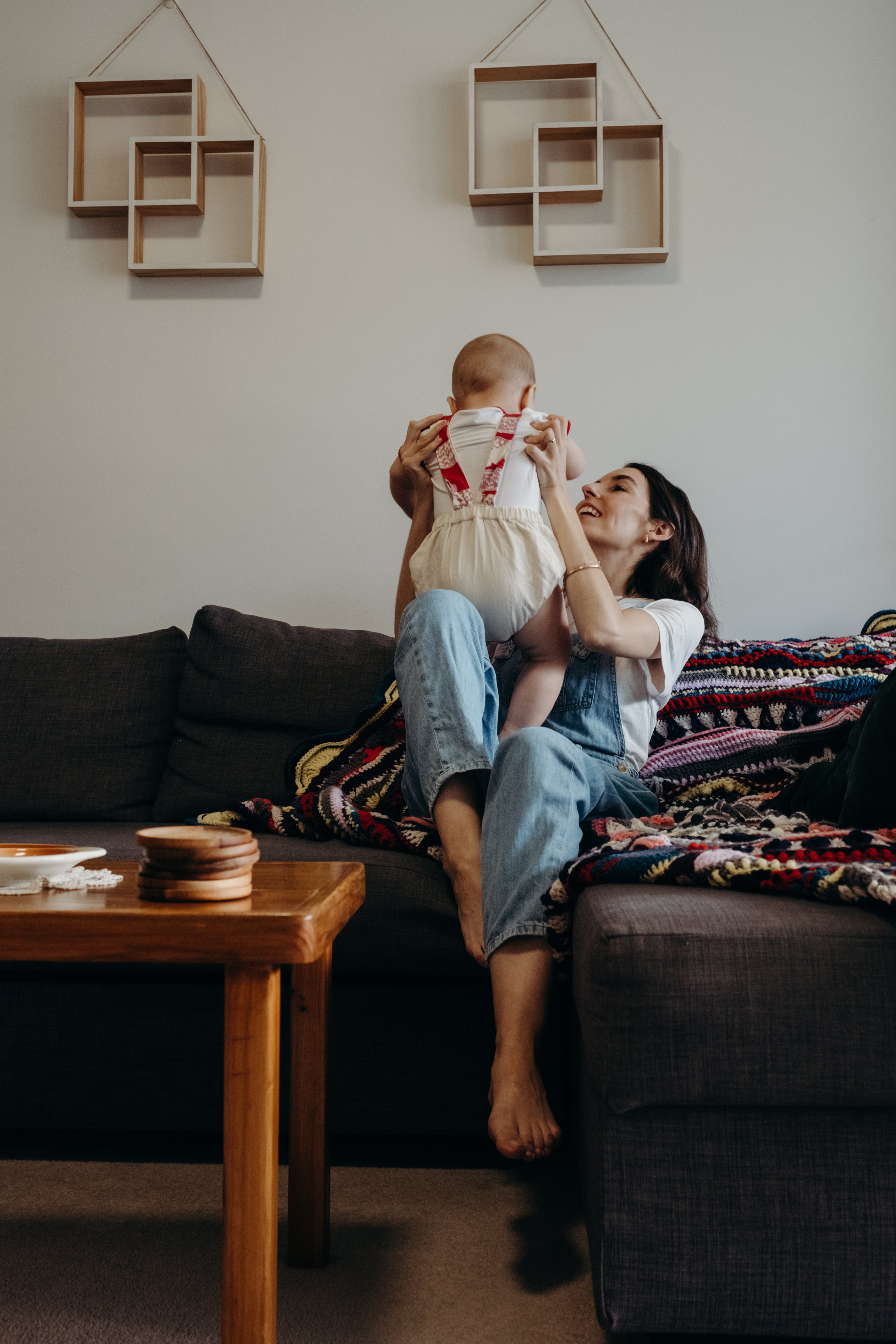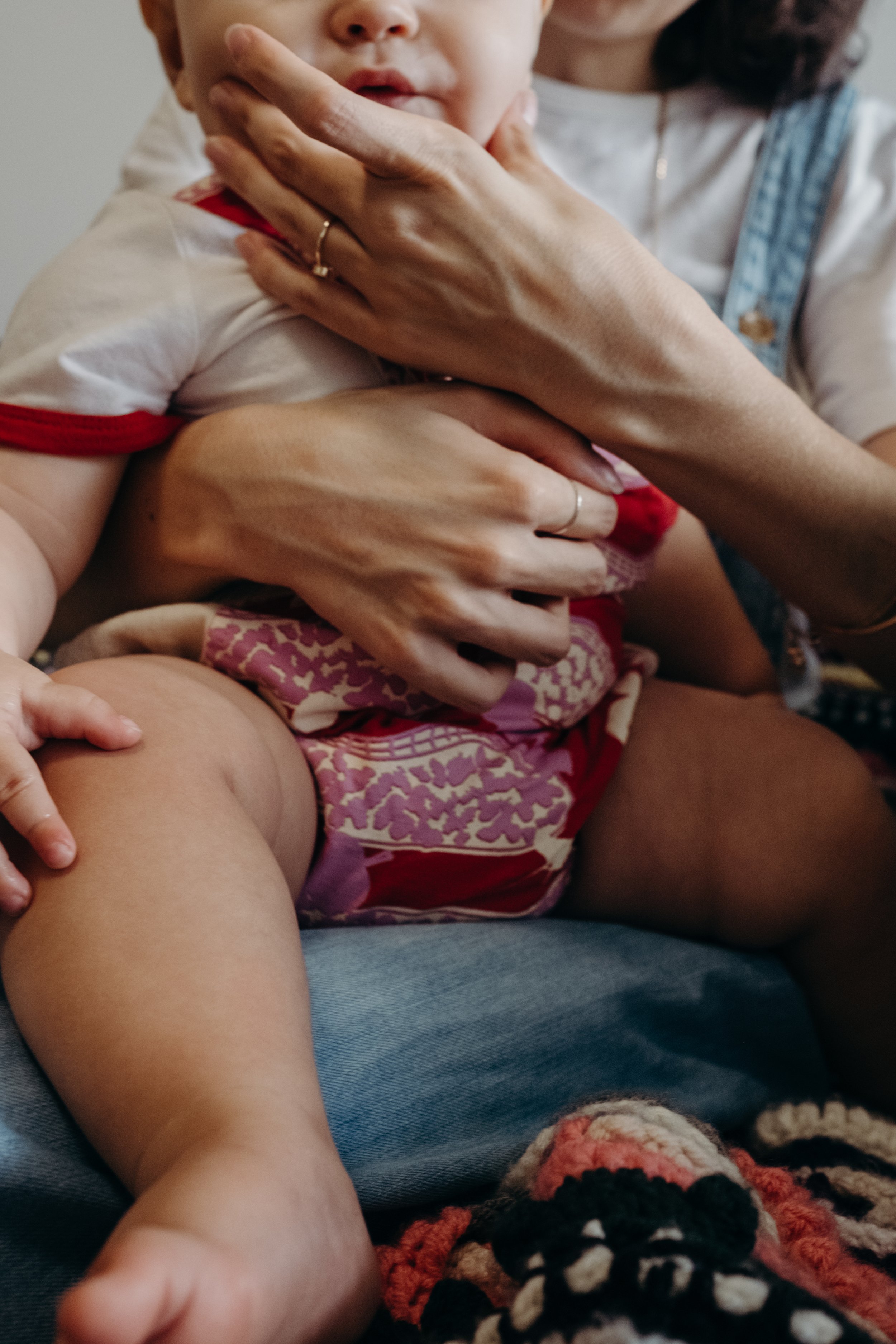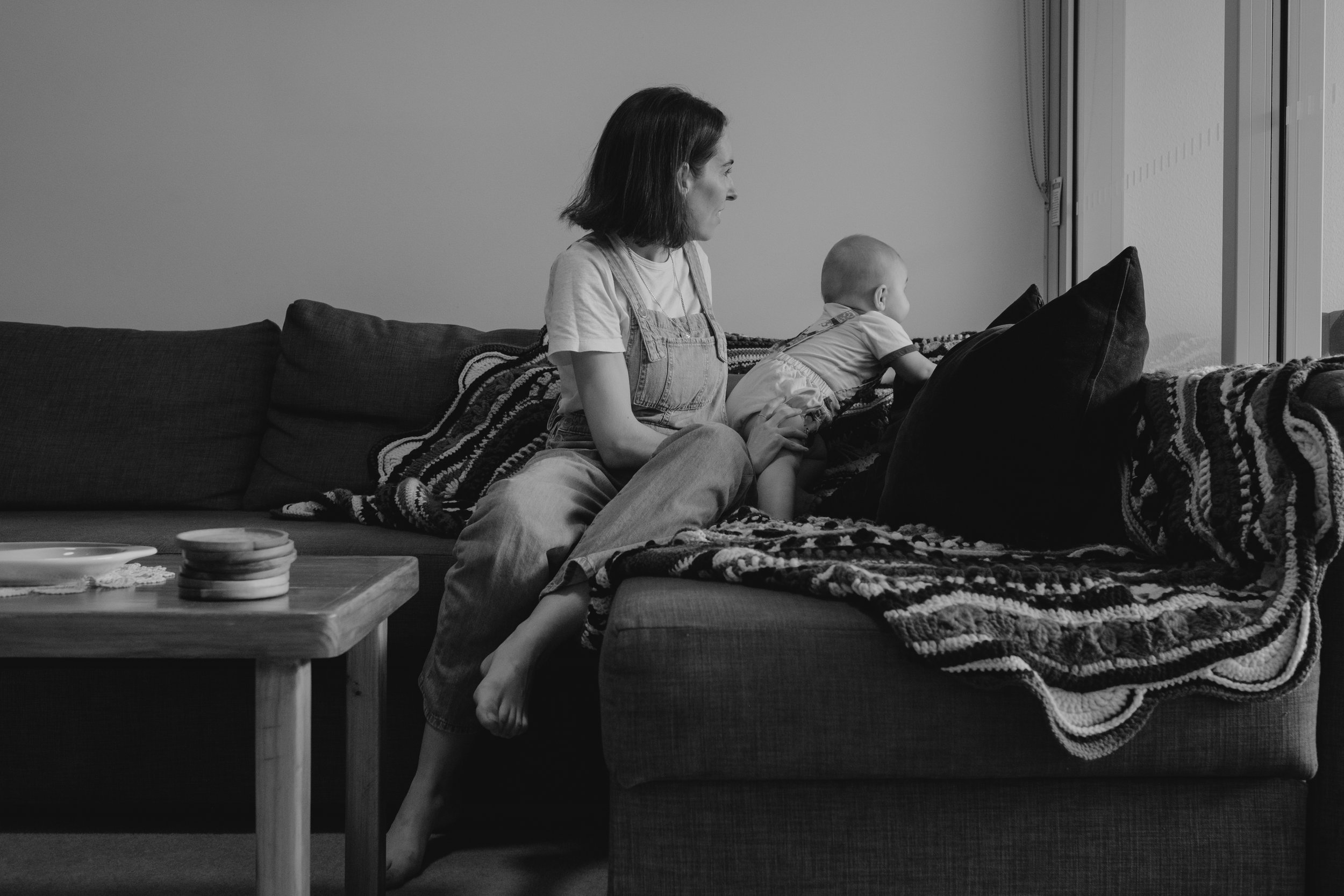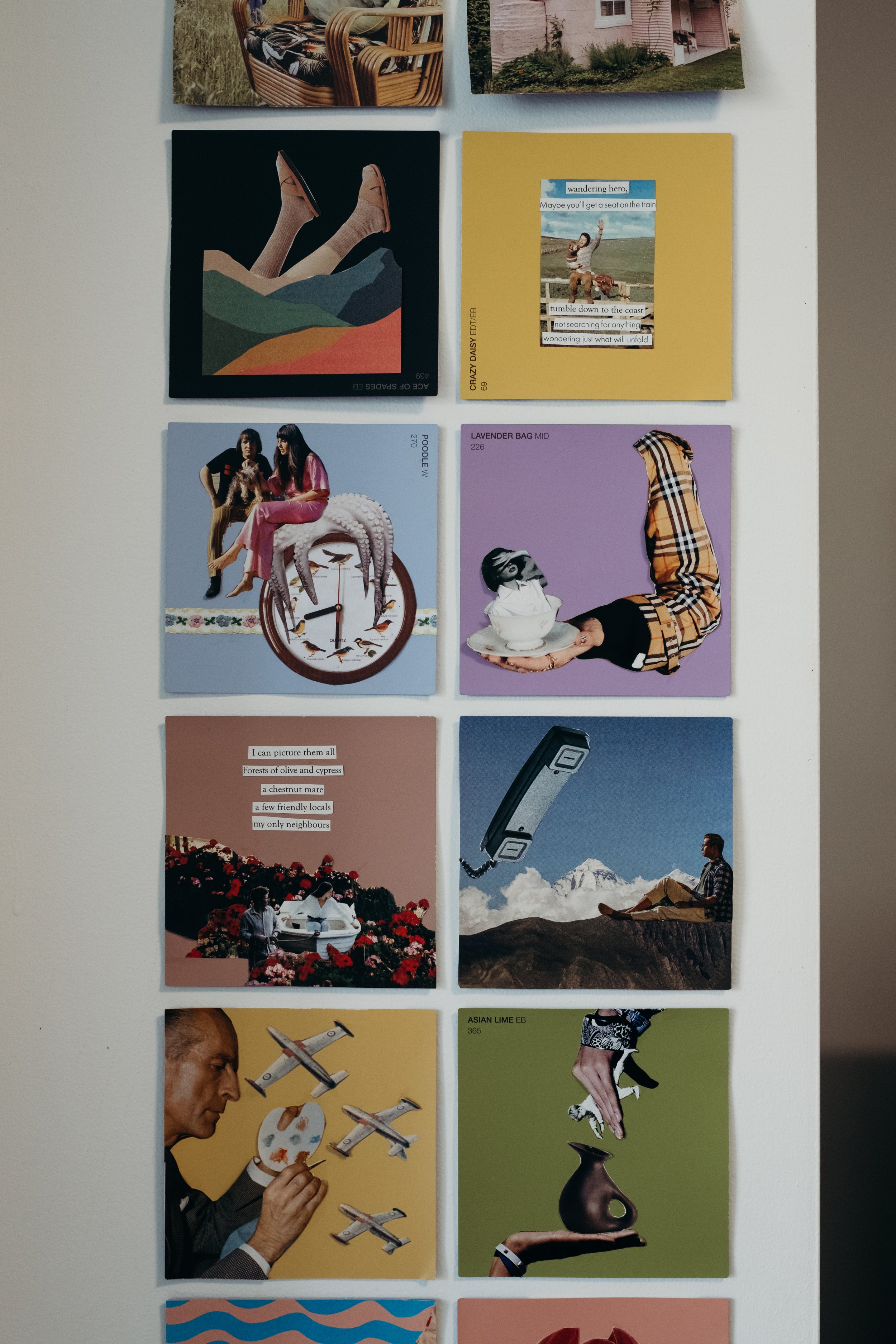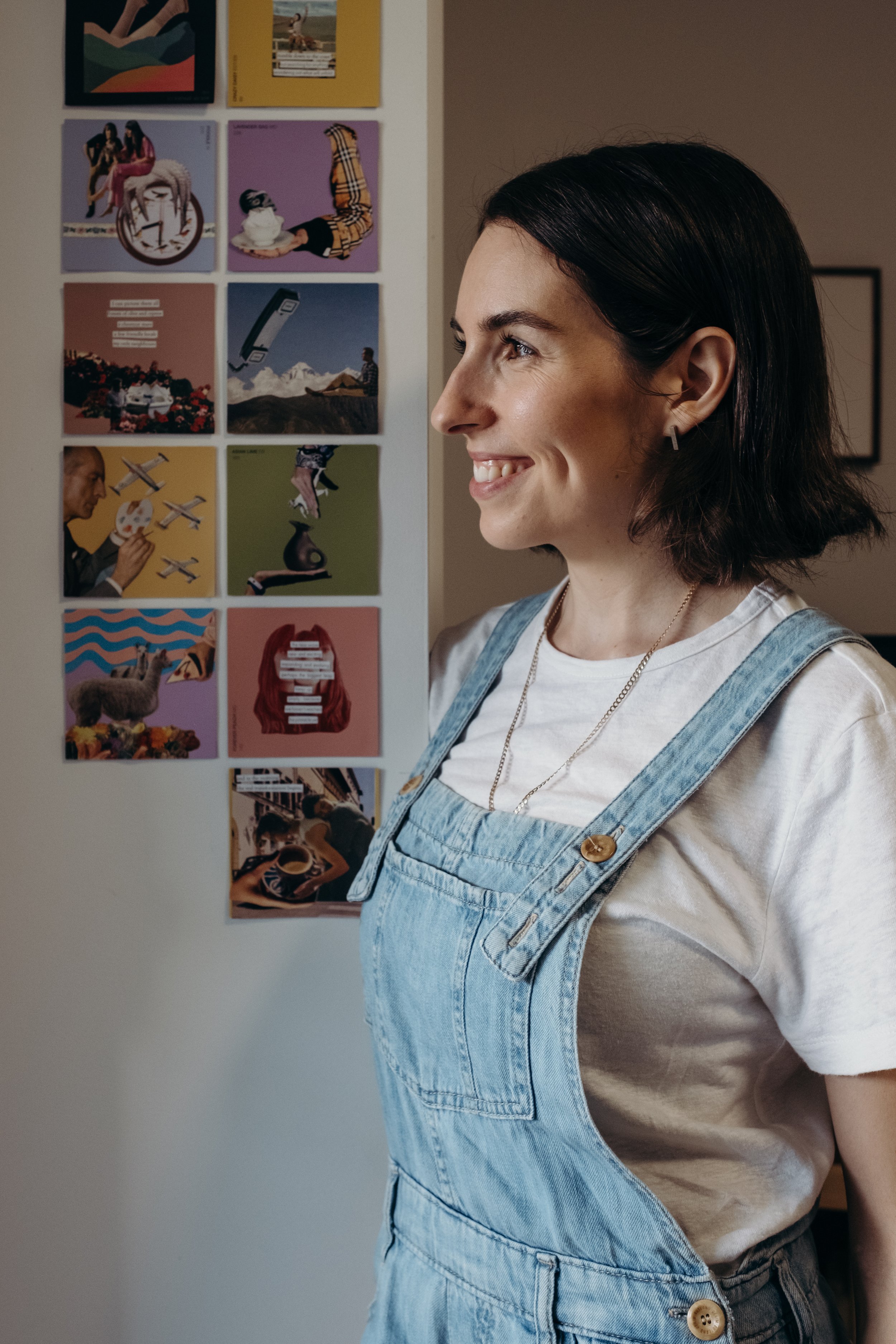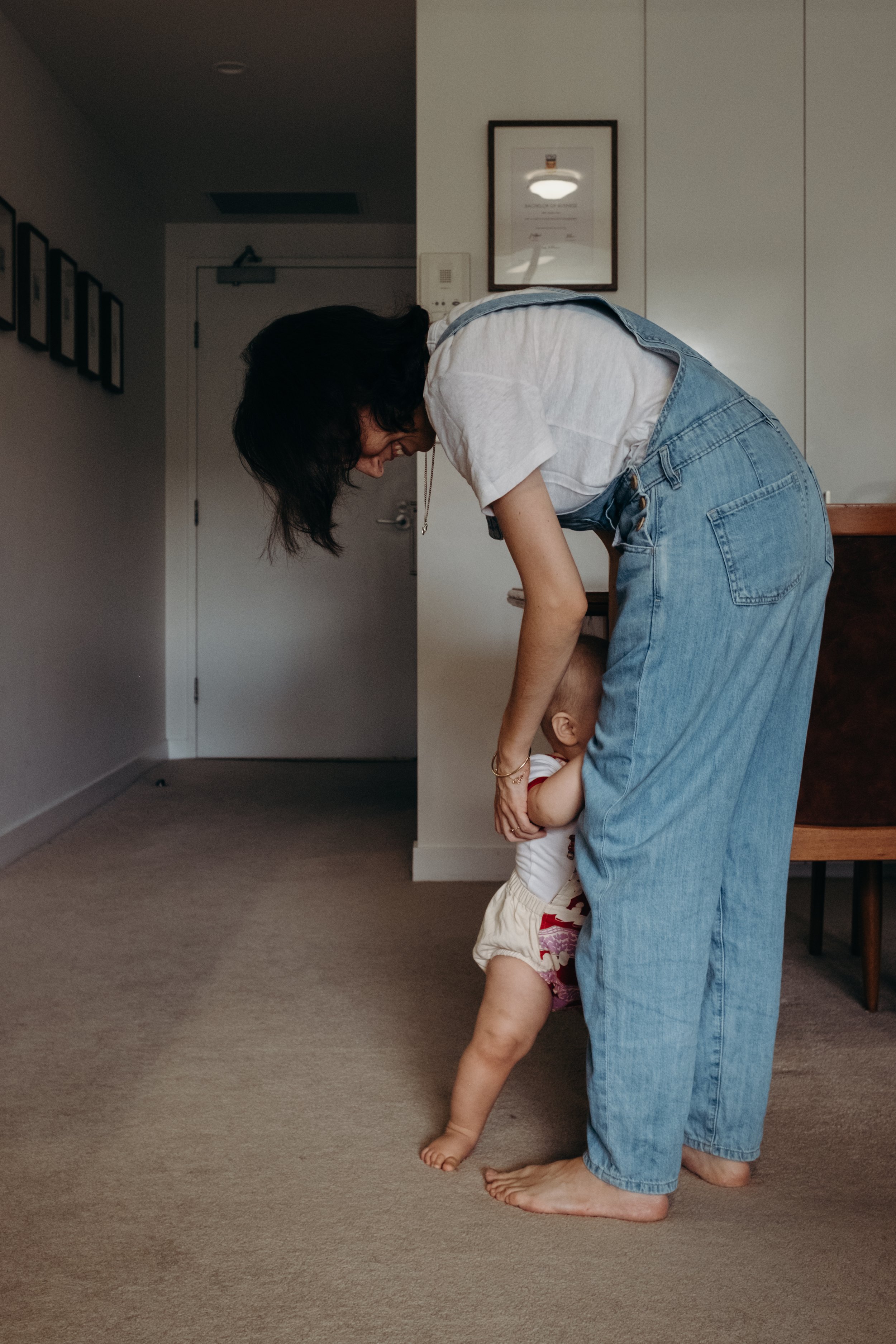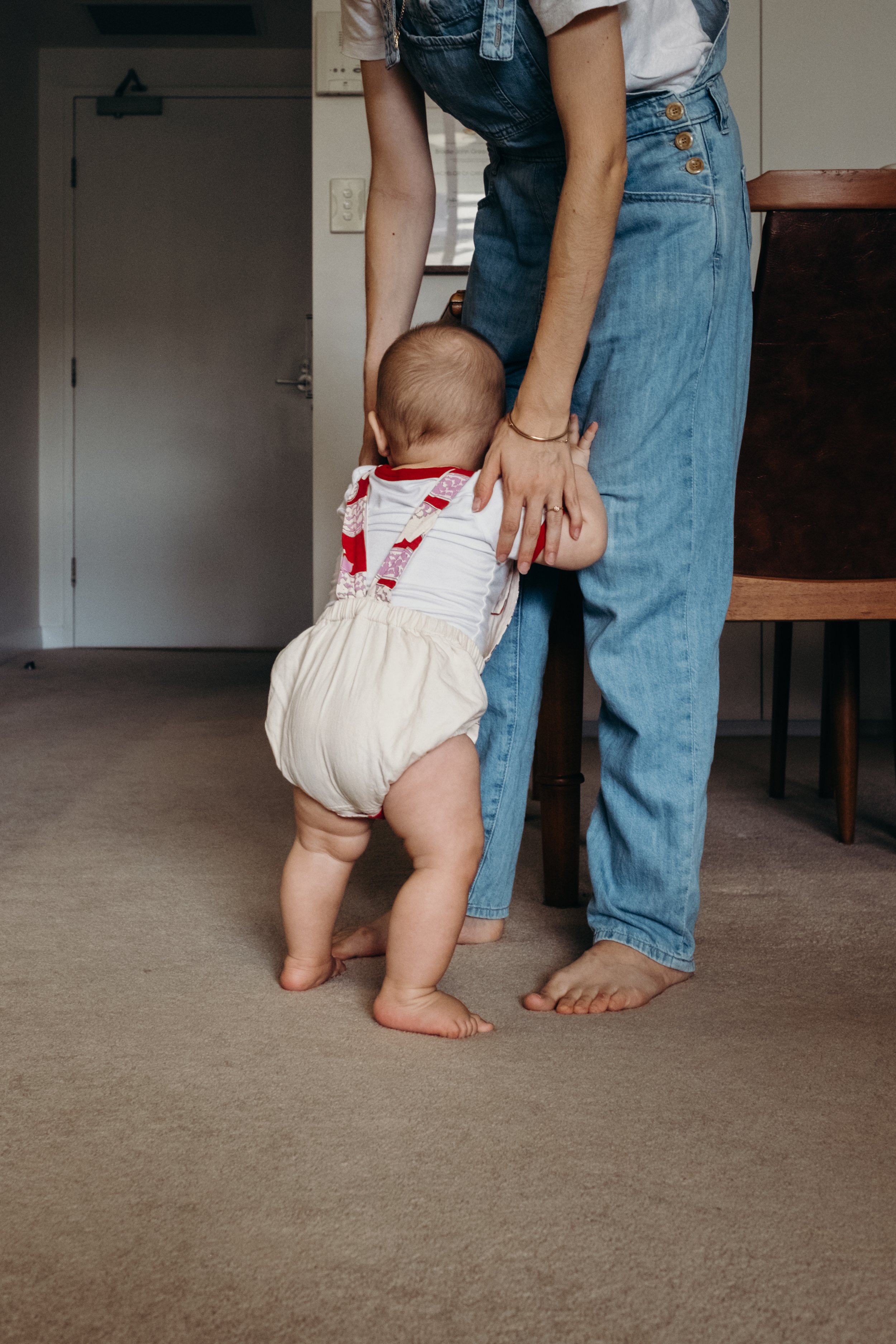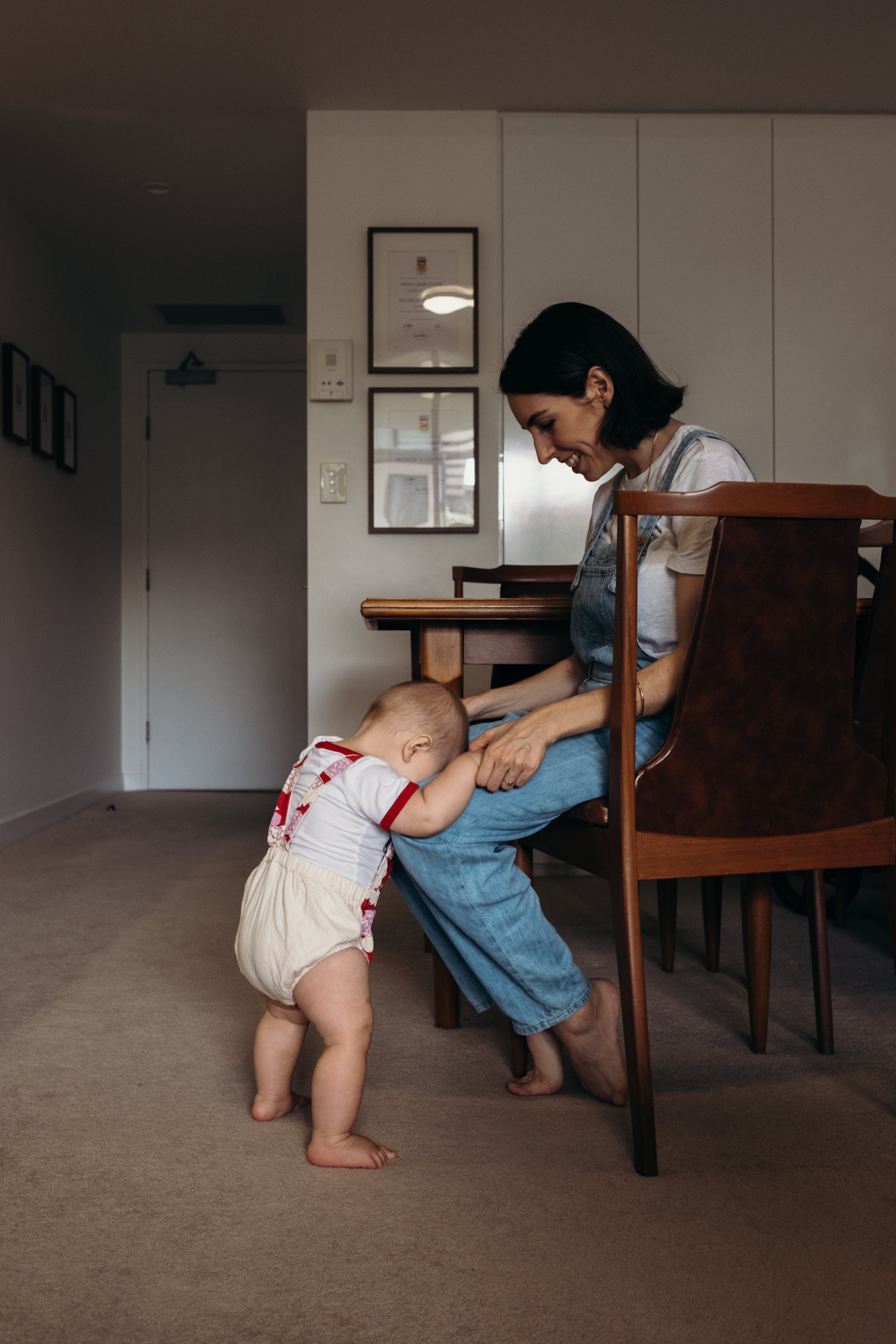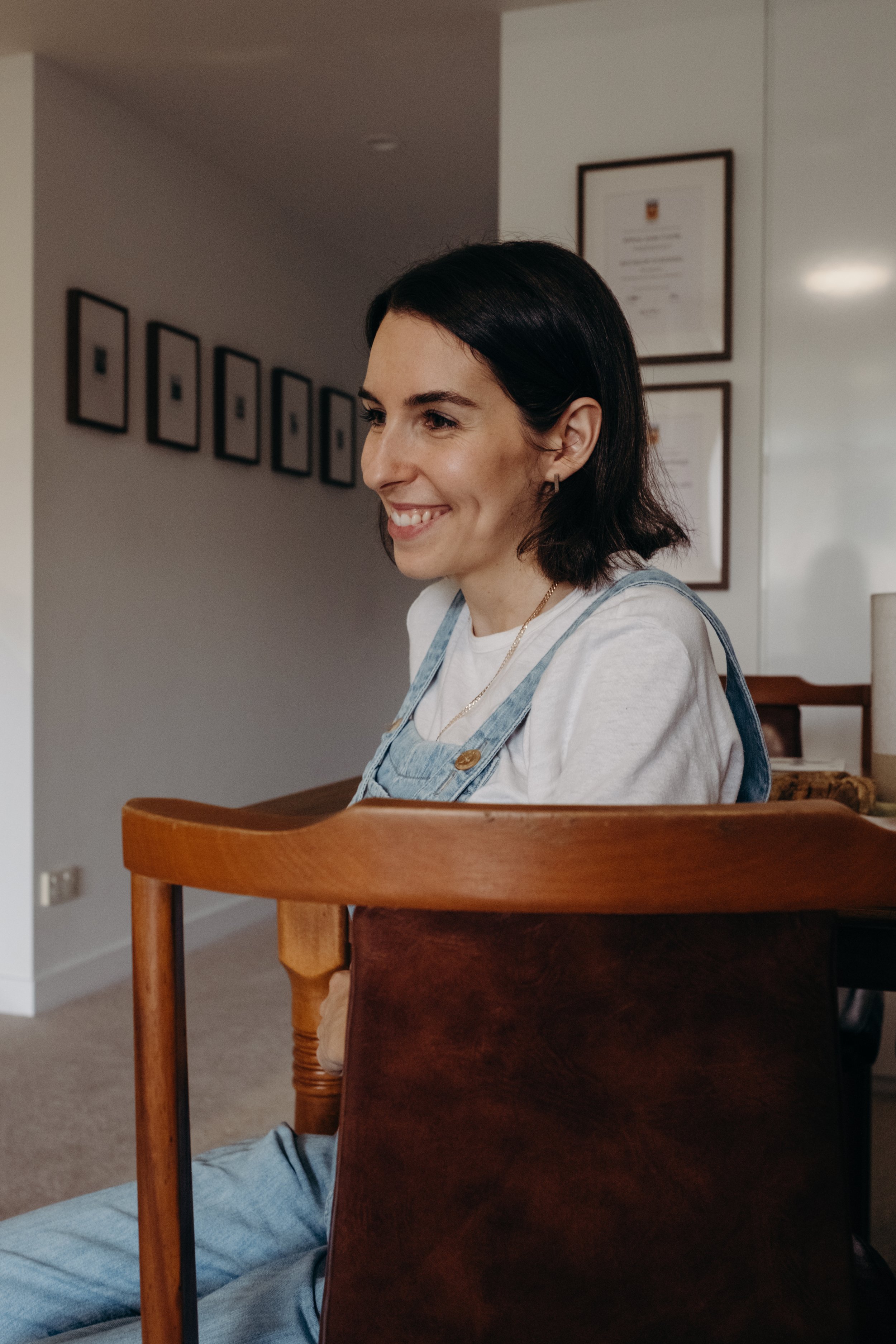In conversation with writer, Athina Greenhalgh
Sustainability writer, Athina Greenhalgh, shares all things freelance, motherhood, creativity & beyond.
Until recently we’d known Athina Greenhalgh as a writer for Outland Denim, capturing audiences with sunlit campaigns and educating denim diehards on sustainable manufacturing. Since then she has opened her scope as a freelance Sustainability Copywriter, working with brands who are determined to make an impact. In 2023 Athina & her husband welcomed their boy, Ávgoustus to their family, which also includes Gabby the Bearded Collie. I made tea for us in her kitchen, and Athina generously shared all things freelance, motherhood, creativity & beyond while we watched Áv explore his little world.
How are you having navigated the journey from working full time, to making the decision to go freelance, to becoming a mother? How did that all come about?
I had felt my brain being pulled in a couple of different directions before falling pregnant. I adored my job and the brand, but I also had this idea that freelance might suit motherhood really well with the flexibility of that. So eventually after thinking about it for a really long time, made the call that that's what I would do. But then a few weeks later, we had a positive pregnancy test. So I didn't really intend for both things to happen. I thought maybe I'll have like a little run up with freelance and then you know, find my feet with it and and then fall pregnant, but it just happened at the exact same time.
In some ways at the time it was really chaotic and quite frankly, dumb to do. But then, on the other hand, it forced me to learn a lot of lessons very quickly. I couldn't muck around figuring out how freelance work best for me. I just had to figure it out as soon as possible.
How does it feel going from working as part of a team on one brand to being a team of one? And now with many small, purpose-led businesses coming to you!
I think what surprised me at first was how isolating it can be. Because even though over COVID we all sort of got used to working from home or solo working, you’d still have a team member on the other end of a phone call, or a Slack message or an email, and you have a shorthand and a rapport.
Now it’s a different relationship. And it's the building up of that rapport again, so it doesn't feel so transactional and so you don't feel so isolated. That was really tricky towards the beginning. As part of that, we naturally want feedback on our work. And I think when you're in that very familiar team environment, people's confidence in your competence comes in formal and informal, direct and indirect ways. It’s reiterated so much throughout the day. You know, like the, “You’re a legend!” after you’ve sent something through. Things like that. Whereas I had to get used to it that with freelance, you don't have that shorthand and that rapport straight away with people. So you're going, did you actually like it? Did I actually do a good job on that? Am I a fraud? [Laughs.]
That's also true when you’re at home as a new mum. And for you, those things happen simultaneously. We don’t always get feedback on our mothering (especially from you right now Ávgoustus, you’re a bit short on words).
How was it navigating new motherhood with a new business? Were you able to take a break from work or did you feel you had to be on while you were learning to be “Mum”?
A bit of both. I was definitely “Mum” first. I had a couple of months off which was great as I’d been working part time up to [having Áv] as well. And then I think in the third month, (I was still mostly having maternity leave), but I took one of my monthly clients back on and just started gradually building it up from there. I was in a really lucky position that my partner could consistently have one to two days off work still on parental leave while I got used to it.
You were able to share the load fairly well?
Oh, yeah, definitely. We shared the load heaps! We’re really lucky that my partner had an excellent amount of parental leave, so we were able to share it. And I was able to slowly transition back into work. So now we're sort of in the next phase of that transition of him back full time. So it's changing again for me now.
How are you liking working with different impactful businesses now that you have been Athina Greenhalgh, Writer, for a year?
It’s great! It's an area I'm really passionate about personally. I naively thought last year was for learning, or the pregnancy phase was for learning and then by this year I'd know what I'm doing. [Laughs.] But yeah, it's been really great. I'm so lucky that everyone I've worked with has been so amazing. Where I'm at now is working out specifically what people's needs are in terms of writing in the world at the moment. There is so much writing that can be done, so I’m trying to be specific.
Probably the other part of learning this year, while having less time, is that within that space innovation and research changes so frequently. So that's something I've had to accept and pivot away from [and work out] how I can still be of service to my area and my target industry. But I accept that those projects surrounding research or communicating research or communicating broad scale impact and keeping up to date with what's happening in the industry - I kind of don't really have capacity at the moment to be as across that as I used to be. So I’m going, “That's okay!” How else can I help?
You write from such an emotive place. The human experience is loud and clear within your work. Do you feel that has been exacerbated by what you have experienced in early motherhood?
Yeah, it definitely has. I mean, obviously in ways like setting up time boundaries and all of that sort of thing. But the work itself probably has, though I haven't really thought about it specifically in a tonal sense, or in an emotive sense. There would definitely be subconscious influences there. But I think I've always been really terrible at writing for myself, which I guess we all are in a way, but I couldn't start a journal for myself. I've always said that I don't feel like I have anything to say. But to write for other people, I find that a lot easier.
You’re an interpreter of sorts. You hear what the rest of us ramble on about and managed to make perfect sense of it.
Yep, I'm much better at that! [Laughs.] I can't work out what's happening up here. [Laughs, pointing to her head.] But other people's words I can do.
Well, on that note you've been working with wordplay through your collages, which, as a viewer, has become an obsession of mine. It seems to be an obsession of yours as well. Where did the wordplay start? How did that element of fun sneak in?
It is, honestly, my flow state. I need to schedule collage time in, which I'm not always great at, but I need it. My friends and I love to get together and collage, and I literally got to the point with some of my magazines that they were so torn up and no images left, I was like, I'll just play around with cutting out the words. And as I said before, I kind of need a brief to be able to write. I can't just journal my own thoughts. This was a really good way of going well, the words are already on the page, I'm just editing them together. I always feel like it doesn't make any sense but then other people read it and they naturally switch into this poetic tone of voice and I’m like, [laughing] you fool, those are just random words I cut out, but people have their own interpretations of them.
Every one takes something from what you have put on paper. It’s giving us a new way to read something and it does feel profound. It’s probably bizarre to hear that word associated with your flow state requirement.
It probably subconsciously helps me in my work writing as well. Just that expansion. Getting out of routine thinking, routine vocab, that sort of thing. Up until this year I’ve been really bad at incorporating any kind of play into my work. I've always had fun at work, and been a bit of a class clown at work and laughed a lot at work, but never used play as a tool. I’ve forgotten where I heard this, but I heard someone speaking last year or maybe earlier this year, on the power of, for lack of a better term, networking. But really just getting out, particularly as a freelancer, and seeing other people. And so it started with that kind of thing. Just getting out and trying to expand myself, more than just being a person behind an email. And following joy.
Whenever I was feeling like, “Ooh I’m not really getting as much work as I would like.”, I would try to book in a time to go see people in a sort of networking, but casual sort of setting. I think that the collaging has been a similar vibe to that. I'm just trying to follow the flow and follow the joy and the play and the fun, and trust that everything else will come. I'm glad that you enjoy it because for so long I was [wondering] are people are going to think like, “Athina has lost it! She really mustn't have very much work going on if she's posting her collages. Oops, did she mean to post that?” But in my head it goes. So I'm glad it’s perceived that way as well.
Everything you have just said feels like a reflection of freelance life and motherhood. To follow the joy and the play, and the importance of stepping outside of your bubble. Have you found that the two have gone hand in hand for you fairly well, so far? How have the challenges and the joys presented themselves?
I feel like I'm still in a bit of a teething period in terms of optimising the hours of the week that I have available to work. What can I get done in that time? But overall, I feel like the work always gets done. It somehow gets done by the deadline. You just go what tools do I have in my toolbox? There's the library, we’ll go to the library. There's grandparents, we’ll ask grandparents for help. There's no one way. Somehow it's gotten done for me anyway. I think, as I said, booking in that creative time has been really important to me. That I don't always find easy. Because even though my partner's incredibly helpful, and if I was to be like, “Hey, I'm gonna spend an hour collaging or out and about tonight.”, he'd be like, "Yep, sweet. I'll handle it.” But it's still hard to do. Because if you're at home, doing your creative flow state activity, you can still hear your Bub in the other room. You might be tempted to go, “I'll just go help”. But yeah, I feel like it's working at the minute.
That's great. there would be many , myself included, who lose sight of that outlet or time for themselves. It's I think it's incredible that you have found that so early in your postpartum journey. It aligns so well, with both work and home.
It's getting there gradually. There are definitely things that I haven't gone back to. I haven't gone back to ballet, things like that. But yeah, getting there gradually.
A while ago you started cooking and learning Greek and became The Olive Oil Advocate for a little while? How did that come about?
Gosh I think that came from me wanting to learn Greek, and also learn how to make some more traditional recipes. But then very quickly losing sight of the fun of that, and going, “And also will turn it into an Instagram page - [laughs] and I'll gain a following.” For my brain at least so that's a really good quick way to have me immediately lose interest in it. So then it was, “I don't enjoy creating content for this. I just enjoy the cooking part and the learning part but I'm not enjoying the content creation part." And that's something that my friends who collage with me, we talk about all the time. “Oh, we could do this! Wait, hang on, stop monetising your hobbies.” That was probably the first realisation for me, that if I was to go freelance that writing would be the thing that I would do.
So I've definitely fallen off the bandwagon in terms of learning Greek. Maybe trying to teach Áv will encourage me to jump back on it. I still love cooking. I hate collecting content of me cooking so you're probably never ever, ever going to see it again. But the Instagram page is still there because I can't bear to lose the name Olive Oil Advocate, because I feel like it's so perfect. It's just sitting there collecting dust at the minute in like the the Instagram account idea graveyard. [Laughs].
I think I have four or five of those as well. So you're not alone! All of these projects have such similarities. There is an element of learning, of play, of words. You are forever surrounded by language and words. And something that makes you slow down, whether it be cooking, or collaging. But from what I've seen, there is always a common thread, which has been beautiful to watch.
I've never noticed that through line. So that's again, you need some perspective I guess sometimes to see these things.
You do, but I can also see how everything has culminated in where you are now. And I can't wait to see my next. You’re obviously having fun writing for these conscious, ethical businesses!
I guess just naturally with freelance imposter syndrome likes to creep its way in. But I've learned from again, getting out and talking to people, that is a natural byproduct of freelance life and working on your own. Now that I can better identify that I am really enjoying it and always was but it was just yeah, that would occasionally creep in. But I'm loving it. Some days I'm like, “Oh, what I did today was learn about cool brands with cool products doing cool things and I might buy one of those when I've submitted this blog.” That's really fun. Because it would be what I enjoy doing anyway.
It's wonderful to see and I know you feel like you're juggling it all because you are you're doing an incredible job.
Thank you.
For more from Athina, you can find her at @athinagreenhalgh.writtenby.
photography & words by morgan smith for morgan journal.


